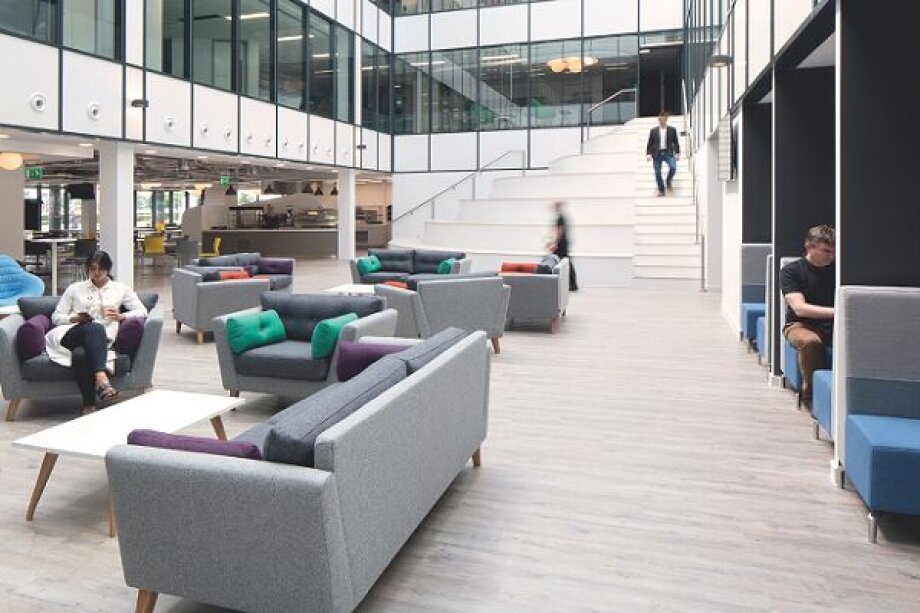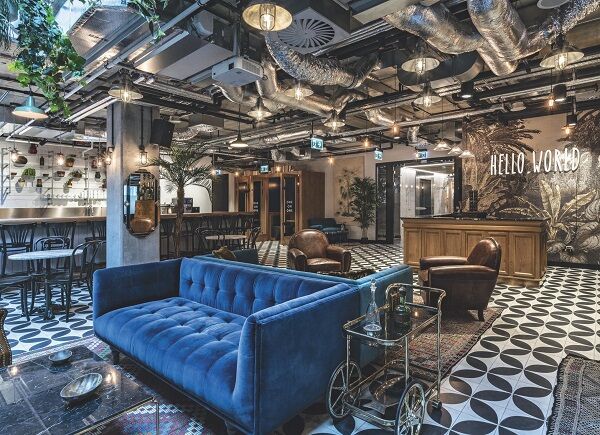‘HUB AND CLUB’
How to effectively adapt to the new conditions and why will offices now operate in the “hub and club” model? These and other questions are answered by Danuta Barańska, creative director, Tétris Poland.

How to effectively adapt to the new conditions and why will offices now operate in the “hub and club” model? These and other questions are answered by Danuta Barańska, creative director, Tétris Poland.

Currently, despite restrictive safety rules, each office can be arranged so that it can be used up to 90 percent. At JLL’s Madrid headquarters, it was possible thanks to “Pivot Spaces.”
“Pivot” means a fixed point that supports something that rotates or balances to change direction. In the real estate and fit-out industry, it is a model of designing multifunctional and easy-to-reorganize spaces. “We suggest our clients take a closer look at their offices and efficiently adapt them to the standards and expectations that Covid-19 has left in its wake. ‘(Re)imagine’ is a philosophy of wise and agile adaptation of the available space so that the workplace is safe, efficient, flexible, modern and aesthetic. Offices will take on the role of a ‘hub and club,’ which means work environment that favors cooperation, business and social meetings, and interactions necessary to be productive and creative in business,” explains Barańska.
 JLL’s research shows that 58 percent of respondents miss their offices. While remote work is said to be a new trend set by the coronavirus, the reactivation of office spaces is inevitable and is gaining momentum. “It’s a natural turn of events. During the lockdown, accommodating to remote work system was a priority. It showed that the effectiveness of such work seems satisfactory. However, after a few months of operating from home, employees simply miss the opportunity to meet and work in a professional office space,” says Barańska. “The rearrangement of the office in Madrid is a great success and an example of the efficient organization of cooperation spaces. The basis is a professional analysis and planning, as well as design with the use of modular furniture. The ‘remote’ work style can be a convenient complement to the cooperation model but it will never replace ‘face to face’ interaction.”
JLL’s research shows that 58 percent of respondents miss their offices. While remote work is said to be a new trend set by the coronavirus, the reactivation of office spaces is inevitable and is gaining momentum. “It’s a natural turn of events. During the lockdown, accommodating to remote work system was a priority. It showed that the effectiveness of such work seems satisfactory. However, after a few months of operating from home, employees simply miss the opportunity to meet and work in a professional office space,” says Barańska. “The rearrangement of the office in Madrid is a great success and an example of the efficient organization of cooperation spaces. The basis is a professional analysis and planning, as well as design with the use of modular furniture. The ‘remote’ work style can be a convenient complement to the cooperation model but it will never replace ‘face to face’ interaction.”
“Pivot Spaces” rotate around furniture such as:
• single seats with high backs
• modular desks and tables
• modular armchairs and sofas
• barriers separating different work zones in the form of plants, curtains, etc.
• non-standard furniture adjusted to the selected space
“‘Pivot Spaces’ work well in the current conditions of office rearrangement with a focus on safety. There are also modern technologies and design trends that should serve the purpose. This way of perceiving reality and the workplace will stay with us for longer,” emphasizes Barańska.